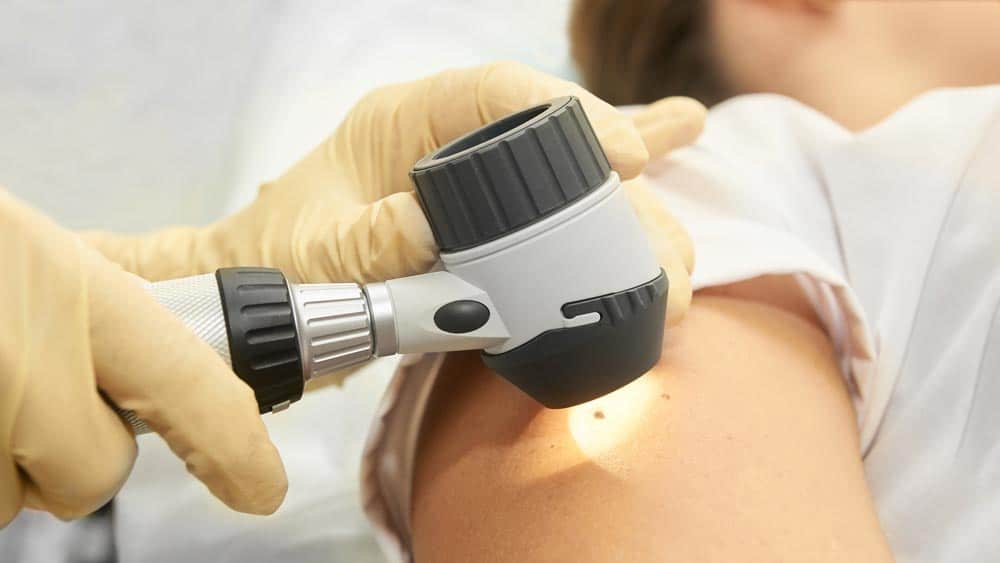The Importance Of Skin Check-Ups
- Author: Eli Waters Medical Centre
- Published:
Maintaining good skin health is an essential aspect of our overall well-being. With the increasing prevalence of skin cancer worldwide, it has become more important than ever to prioritise regular skin check-ups. In this comprehensive blog post, we will discuss the importance of annual skin exams, why they are crucial, how often you should have your skin checked, preparing for the exam, tips on reducing your risk of skin cancer, and ultimately how you can protect yourself from this potentially life-threatening condition.

About Annual Skin Exams
An annual skin exam is a thorough examination of your skin by a dermatologist or qualified healthcare professional. The purpose of this exam is to identify any suspicious moles, spots, or other skin abnormalities that could be signs of skin cancer. During the exam, your skin will be closely examined from head to toe, including areas not typically exposed to the sun, such as the scalp, behind the ears, and between the fingers and toes. Early detection of skin cancer is crucial, as it significantly increases the chances of successful treatment and recovery.
Why Skin Exams are Important
Skin exams are essential for several reasons. Firstly, they can help detect skin cancer at its earliest stages, allowing for prompt treatment and a better prognosis. Moreover, regular check-ups can help identify pre-cancerous lesions and other skin conditions that could develop into cancer if left untreated. Skin exams also provide an opportunity for healthcare professionals to educate patients on proper skin care practices, sun protection, and self-examination techniques that can further reduce their risk of developing skin cancer.
How Often Should I Have My Skin Checked?
The frequency of skin check-ups depends on your risk factors and personal history. If you have a family history of skin cancer, a history of sunburns, fair skin, or a large number of moles, it is recommended to have a yearly skin exam. However, if you have no significant risk factors, a check-up every 2-3 years should suffice. Individuals with a previous history of skin cancer may require more frequent check-ups as advised by their healthcare professional. It’s essential to consult with your healthcare provider to determine the most appropriate schedule for your unique situation.
How to Prepare for the Exam
To prepare for your skin exam, follow these simple steps:
- Remove all makeup, nail polish, and jewellery, as these can obstruct the healthcare professional’s view of your skin.
- Wear loose, comfortable clothing that can be easily removed, as your doctor will need to examine your entire body.
- Prepare a list of any moles, spots, or other skin abnormalities you have noticed or are concerned about to ensure you don’t forget to mention them during the exam.
- If you have a history of skin cancer or other skin conditions, bring any relevant medical records to your appointment.
- Be prepared to discuss any changes in your skin and any personal or family history of skin cancer.
Tips on Reducing Your Risk of Skin Cancer
There are several ways to reduce your risk of skin cancer, including:
- Wear sunscreen with a minimum SPF of 30, even on cloudy days, and reapply every two hours or after swimming or sweating.
- Avoid sun exposure during peak hours, typically between 10 am and 4 pm.
- Wear protective clothing, such as wide-brimmed hats, sunglasses, and long sleeves.
- Regularly examine your skin for changes and report any concerns to your healthcare professional.
- Maintain a healthy lifestyle, which includes a balanced diet, regular exercise, and staying well-hydrated. These factors can contribute to overall skin health and may help reduce the risk of skin cancer.
- Teach children about the importance of sun protection and encourage them to develop good sun safety habits from an early age.
- Know your skin type and understand your level of risk for developing skin cancer. This knowledge can help you take appropriate precautions and make informed decisions about sun exposure.
Protect Yourself from Skin Cancer Today!
Regular skin check-ups play a crucial role in the early detection and prevention of skin cancer. By prioritising these exams and following the tips mentioned above, you can significantly reduce your risk of developing this potentially life-threatening condition.
If you’re in the Hervey Bay, Burrum Heads, or Eli Waters area, consider scheduling an appointment at Eli Waters Medical Centre. Our team of healthcare professionals is dedicated to providing comprehensive skin care and educating patients on the importance of regular skin check-ups. Don’t wait—schedule your skin check-up today and start developing healthy sun protection habits that can benefit you for years to come.




